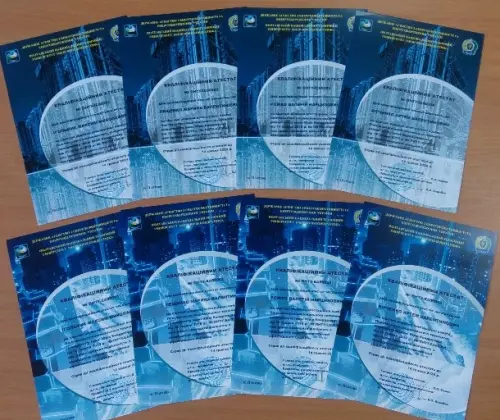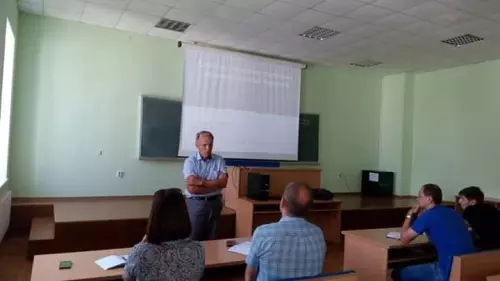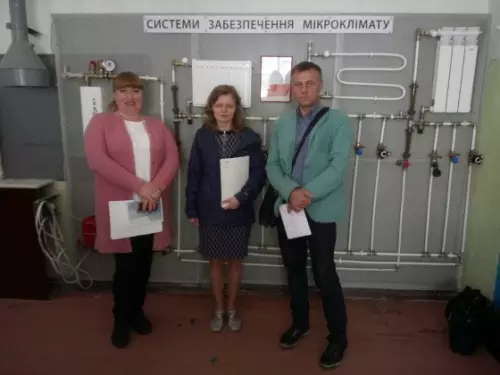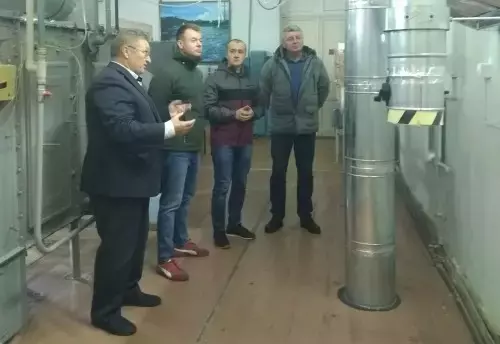Thermal power engineering studies fuels, heat and electricity production and is rapidly becoming increasingly important due to sharp fluctuations in energy prices. Nowadays, electric power is produced worldwide to a greater extent at thermal power plants that run on various types of fuel.
While the electric power industry deals with the transmission of electricity, generators and transformers, the thermal power industry is concerned with the production of electricity. Thermal power equipment also produces heat, which is used for the purposes of heat supply to residential, administrative, household and industrial buildings and structures.
The main subject of study in heat and power engineering is heat transfer. In some cases, its intensification increases the efficiency of the equipment, while in others, heat is saved by reducing heat transfer.
The main positions you can work in after graduation:
- thermal power engineers;
- Heat supply engineers;
- chief engineers and directors of power plants;
- chief power engineers and directors of district heating companies;
- employees and heads of departments of state administration;
- researchers;
- heads of research and design organizations;
- teachers of higher education institutions;
- boiler and turbine operators.
The main places of work where you can work after graduation:
- thermal and nuclear power plants;
- heat generating units (boiler houses);
- industrial energy facilities;
- design, installation, and repair organizations;
- higher education institutions;
- research institutes and centers;
- state administration structures;
- Ministry of Energy.
The main tasks that a graduate will be able to solve in the future:
- operation, repair of thermal and mechanical equipment of energy facilities: boilers, steam and gas turbines, heating networks;
- design and construction of boilers, steam and gas turbines;
- energy management;
- energy audit;
- sale and further maintenance of heat and power equipment;
- design and installation of heat supply systems for buildings and structures for various purposes;
- automation of thermal and mechanical equipment of energy facilities.
Specialty 144 "Energy Management"
Today, energy saving should become the top priority of modern energy policy, the successful implementation of which will result in reducing the negative impact of the fuel and energy complex on the economy and the environment, improving the quality and domestic goods competitiveness by reducing their energy intensity, and reducing imports of fuel and energy resources to the lowest possible level, which will increase the energy independence level of our country.
Energy management is a management system that ensures the rational use of fuel and energy resources. Energy management helps to achieve significant energy savings without significant financial losses.
An energy management specialist is able to:
- Identify defects, inefficiencies and interruptions in energy consuming systems;
- promptly identify undesirable trends in the use of energy resources;
- recommend equipment improvements;
- train staff on the work principles in the context of changing energy consumption policy.
After graduation, graduates can work as engineers, scientists, managers of various levels at energy supply and energy use facilities, enterprises and organizations of various types (design, production, commissioning, educational, scientific, and governmental).
The specialist can work as a design engineer, design engineer, research engineer, assistant of a higher education institution, technologist, engineer for the introduction of new equipment and technology, project technologist, head of the production department, head of the site, head of the design and development department, production foreman, production laboratory foreman, can hold primary positions of engineer for: operation, optimization and design of heat engineering equipment of any type (furnaces of ferrous and non-ferrous metallurgy, industrial Given Ukraine's significant lag in energy saving technologies and rising energy prices, the scope of activities of an energy management specialist is virtually unlimited - he is needed both at industrial enterprises and small companies specializing in reducing energy consumption in residential premises.
A graduate of the department will be able to perform thermal calculation of engines, including aircraft, refrigeration power plants, complex thermohydraulic systems and their elements; testing, adjustment and operation of heat and power and refrigeration equipment.
Preparation for professional certification and professional certification of persons who intend to carry out activities for the certification of energy efficiency of buildings and inspection of engineering systems
The Department of Civil Engineering and Transportation, together with the Department of Architecture and Urban Construction, conducts courses to prepare for the professional certification of persons who intend to carry out activities related to the certification of energy efficiency of buildings and inspection of engineering systems. In 2019, professional certification was carried out for 15 people (on a contractual basis for a total amount of UAH 120 thousand), and they received certificates that authorize them to carry out activities related to the certification of energy efficiency of buildings and inspection of engineering systems. https://nupp.edu.ua/page/pao-yaki-mayut-namir-provaditi-diyalnist-iz-seeois.html
Training of energy auditors for the State Energy Efficiency Fund has started https://nupp.edu.ua/news/pochalas-pidgotovka-yenergoauditoriv-dlya-derzhavnogo-fondu-yenergoyefektivnosti.html
National University "Yuri Kondratyuk Poltava Polytechnic" signed a Memorandum with GIZ and received a case of devices for training energy auditors https://nupp.edu.ua/news/politekhnika-pidpisala-memorandum-z-giz-i-otrimala-keys-priladiv-dlya-navchannya-yenergoauditoriv.html



